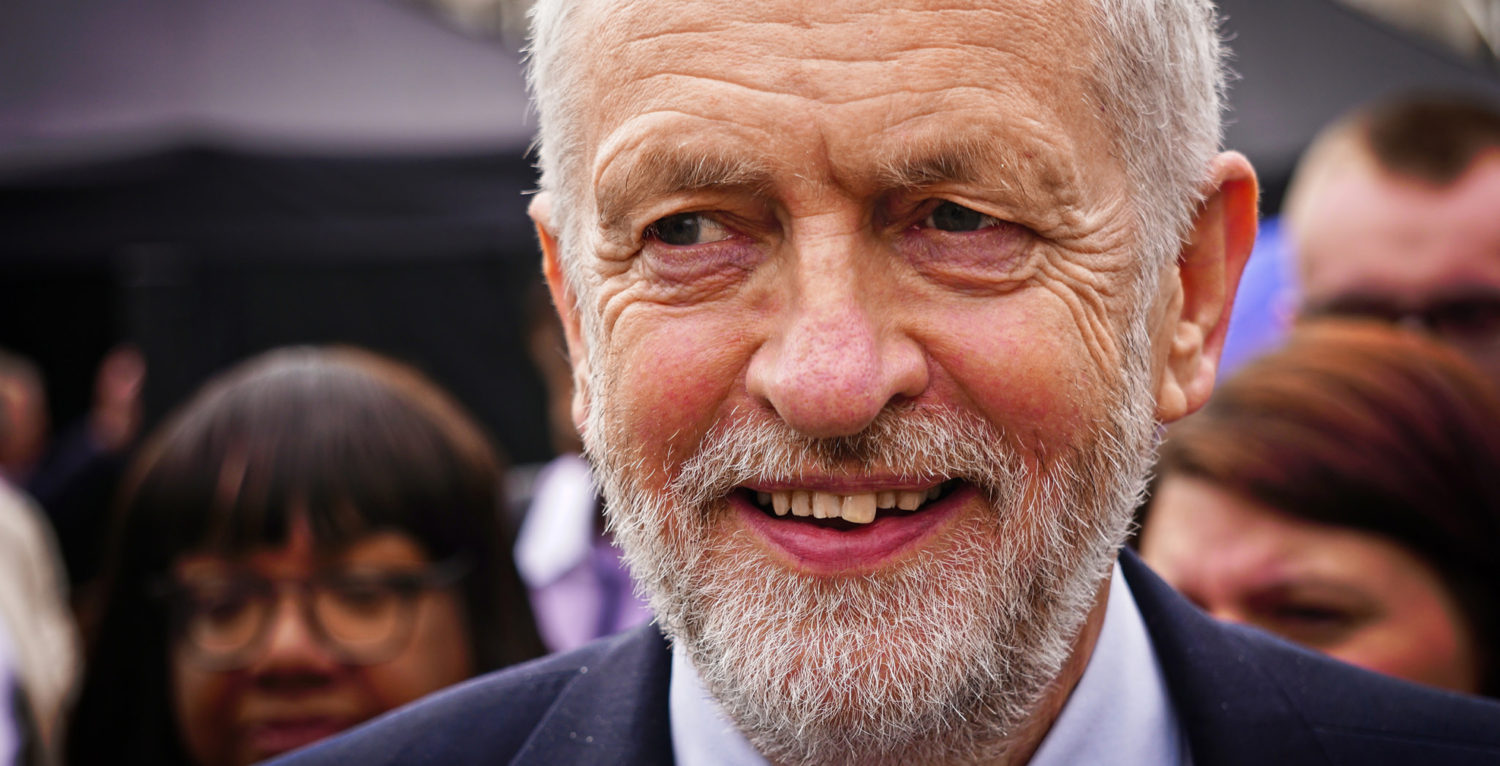Negotiating the red lines
Is Jeremy Corbyn’s position on Brexit, nationalisation and our domestic industries reasonable? Andy Tarrant takes a closer look.
Labour has laid out a set of eminently sensible tests by which it will judge whether the Brexit deal struck by the Conservative government is in the national interest or not. In speeches in Coventry and Dundee, Jeremy Corbyn has set out some further red lines which he says Labour would expect to be met. But are the Labour leader’s red lines reasonable – and are they really necessary? In Dundee Corbyn said that Labour would seek “…exemption from current rules and directives that push privatisation and public service competition or restrict our ability to intervene to support domestic and local industry and business or undermine attempts to protect rights at work”.
EU rules which push privatisation and public service competition
EU rules do not push privatisation. The EU is constitutionally required to be neutral as regards public ownership or privatisation. At central government level, EU member states have ownership stakes in more than 800 companies (and many more at regional and local government level). Pressed on these points, the ‘Lexiteers’ fall back on three main arguments:
- the EU does not make member states privatise historically owned companies but it would stop nationalisation of already privately owned companies in the future
- it does not legally prevent nationalisation but ’open access’ rules to utility networks would allow private companies to cherry-pick profitable customers and make nationalised companies unprofitable
- EU rules for open access to utility networks are ‘neo-liberal’ and ideological rather than in the general interest
Taking these arguments in turn:
Single market rules don’t prevent nationalisation of already privatised companies or the setting up of new ones
The argument that the EU freezes the form of ownership currently present and the UK is ‘stuck’ because of its previous privatisation experience is not correct. The EU has no rules which prevent the state from either taking over an existing company or setting up a new state-owned company. Railtrack itself is an example of a company that was privatised prior to being taken back into state ownership.
The Rebuilding Rail report sponsored by Aslef, RMT, TSSA and Unite in 2012 rightly stated: “Despite arguments made at the time of UK rail privatisation, European legislation does not dictate that railways must be fully privatised. There is no requirement under EU legislation for railway infrastructure to be in private ownership. Nor is there any bar on train services being operated by a government-owned enterprise.” (This report factored in the changes expected in the Fourth Railway Package discussed below).
EU rules allow the state to prevent the private sector ‘cherry-picking’
The suggestion that private enterprises can cherry-pick, taking the profitable customers and forcing the state-owned operator to become uneconomic because it is left with the rump of unprofitable customers is also incorrect. Unsurprisingly, the member states of the EU, with their large number of state-owned enterprises, did not agree regimes which could bankrupt their own enterprises and worsen their national fiscal positions. Instead, the EU utility regimes allow individual member states, if they so choose, either to force private enterprises to share the requirement to offer service to uneconomic customers, or to calculate the costs of serving uneconomic customers and make private enterprises contribute to the costs of the state-owned enterprise providing those services.
Are EU open access utility rules preventing national monopolies ‘neo-liberal’ or designed to support continent-wide economic production?
One feature of utilities is that they are typically network industries which support a much wider and economically more significant mass of industrial activity. National utility monopolies no longer map as they did in 1945 on to the production sites of producers. In 2017, UK manufacturing and services are highly integrated into EU supply chains. They require multiple sets of national utility inputs that can be put together to create virtual pan-European networks on a cross-border basis. A serious economic argument for legal monopoly would in most utilities now need to make the case for a pan-European legal monopoly, not a national one, if it were to be consistent with actual existing production.
Rail freight provides a good example of this general pattern. EU rules have begun to require national railway operators to make access available to track and other railway systems so that railways operators can piece together trans-continental freight services over the top of the patchwork of national rail track systems. Why was this sensible? Because restricting rail freight services to a series of national monopolies was killing it off as a service: rail freight generally only becomes competitive with the far less environmentally-friendly road haulage at distances of around 600km and routes of this length are typically cross-border.
Similar benefits from open networks apply in telecoms and energy. Due to the intermittent production of renewable energy, open access across national energy networks is absolutely critical for it to be viable on a large scale. This should be of key interest to the UK given its very large share of total potential European wind and wave power. It is worth noting that in the water sector, where it is not feasible to create overlaying pan-European services, the EU institutions have never shown any interest in legislating for open networks and rejected overtures from British governments to pursue such an objective. If the EU were the ideologically driven neo-liberal organisation its detractors claim, then we ought instead to have seen EU legislation in this sector too.
The UK’s island geography does make the merits of multinational cross-border passenger rail services far less obvious than they can be on the continent. Nonetheless, the EU’s Fourth Rail package requires companies to competitively tender for rail passenger services everywhere in the EU, including in the UK. However, this does not prevent a bidder from being state owned. There are likely to be substantial economies of scale and scope which mean that a nationalised company would usually have a bidding advantage. In addition, the state can set quality, social and labour standards that state-owned companies may in practice be better able to meet. (For example in postal services, the German government requires all postal competitors to Deutsche Post to meet the same terms and conditions for workers as those agreed between the union representing Deutsche Post employees and Deutsche Post and this is perfectly compatible with EU procurement rules). There is also nothing to stop a British government from nationalising any company winning a bid if it turned out not to be the already state-owned company.
EU rules and our ability to support domestic industry
There are lots of forms of state aid for which the EU automatically provides exemptions, in particular where the market is failing to deliver defined public interest objectives – an approach which is likely to be of particular interest to a Labour government. In normal competitive markets, the EU’s state aid rules allow member states to invest in domestic industry where member states can show that it is likely that such investment will create new products and jobs. A paper by professor Andrea Biondi and I analyses the economic policies set out in Labour’s 2017 manifesto and concludes that EU state aid rules are unlikely to pose any difficulties for Labour’s programme. In general, what the EU aims to prevent is member states subsidising loss-making established domestic industries to the detriment of more efficient competing industries located in other member states. Objecting to such an approach is in economic terms the same as saying that where a domestic industry cannot compete that tariffs should be imposed on imports from other member states of the EU. It is essentially an argument for an economy that only trades internally. Re-engineering the UK economy in such a way would involve very high unemployment in the first instance and a much lower living standard on a permanent basis.
EU rules and rights at work
The first important point is that a significant impetus for Brexit for many on the right of British politics is a desire to remove the protection for rights at work required by EU laws. Conversely, the same interpretation of the general thrust of EU law leads the TUC to want to retain the protections inherent in staying in the single market. It is hard to see how any comprehensive analysis by Labour could deliver a wildly different set of conclusions.
Some of the concerns about labour rights and the single market are without any foundation at all. One specific concern appears to be a belief that EU rules might require ubiquitous outsourcing. They do not. They also do not prevent the return of previously outsourced services to local (or any other level) of government. Another concern appears to be a belief that EU public procurement rules might prevent Labour legislating to require bidders for public contracts to recognise trade unions. EU rules would not prevent this. And, it is surprising that this late in the Brexit debate that no effort has apparently been made to bottom out these concerns.
An area where EU law has been more controversial is with respect to posted workers. EU law allows a company in a member state to post employees employed by it in one member state (let’s call it the ’home‘ state) to work in a host member state. The posted workers directive allows the company to pay employees in the host country their home pay for a temporary period. This raises a concern over ’social dumping‘; whereby low-paid workers from other member states could be imported to undercut host workers. The current EU directive allows the host state to insist on national minimum wage requirements but this could be far below the wage in a particular host country sector. EU member states have, however, agreed to revise the directive to allow host countries to require compliance by the company with rules regarding sectoral terms and conditions as set down by the host state or by collective bargaining outcomes/arbitration awards made in the host state. It would be open to an incoming Labour government to put in place the mechanisms applying a revised directive to ensure that social dumping could never be an issue. We should be aware that the ability to post workers abroad temporarily is in itself a good thing; most employers post workers abroad for temporary periods to support continent-wide supply chains, not to undercut wages. For example, to ensure the successful start of production of the new Mini in December 2013, more than 140 BMW UK employees worked temporarily in Germany during key phases of the launch process and a similar number of staff from other parts of their company’s network were seconded to the Mini Plant in Oxford.
A surrogate battle
EU laws can be far more hospitable to socialist political economy than current UK laws. It is genuinely unclear then why the Labour leader’s speeches remain as vague as they were a year ago. It might simply be short-term electoral triangulation, offering the customs union with the one hand, while inventing excuses for rejecting integral elements of the single market with the other. It could be that advisers hope to engineer an apparent future diplomatic triumph, when the EU agrees that a Labour government is free to pursue its plans (as it always could). Alternatively, it could be that some advisers have been swayed by ageing advocates of the siege economy. I would suggest that for the latter – and for their rivals on the Brexit right – exiting the EU is a surrogate and often deliberately obscured battle between rival extreme versions of British political economy. It’s not a very honest choice of surrogate – as the EU can mostly accommodate either left or right versions of national political economy within its structures; though the EU does pose insurmountable blocks to those on the Brexit right, whose priority is eliminating workers’ rights as well as a move away from precautionary consumer and environmental protection, and to those on the left who might like to eliminate international trade. The suspicion must be that real reason these two rival groups of Brexit campaigners maintain that the EU is a block to their aspirations is that they fear that without the rocket fuel of nationalism their wider objectives could never gain sufficient popular support.
Author
FEPS-Fabian summer conference
Come along to the FEPS-Fabian summer conference on Saturday 19 May and hear from Diane Abbott MP, Keir Starmer MP & Ed Miliband MP. Join the Fabians today & get your ticket for FREE!
Read more

